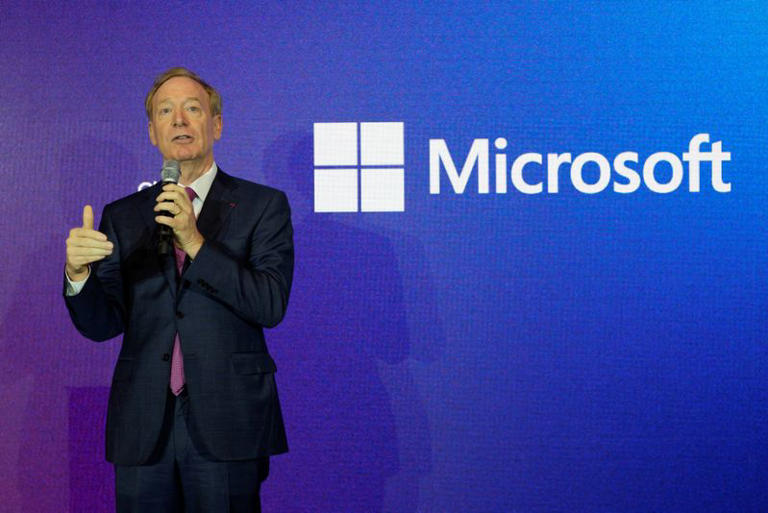Microsoft’s recent venture with the United Arab Emirates-backed AI firm G42 has ignited a heated debate over potential national security ramifications, prompting scrutiny from policymakers and industry players alike. In a revealing interview with Reuters, Microsoft President Brad Smith provided insights into the agreement’s scope, hinting at the possibility of transferring sophisticated chips and tools—crucial components of AI technology, such as model weights, which play a pivotal role in determining AI system efficacy.
The envisioned sales agreement, though still in its nascent stages, could potentially evolve into a second phase involving the export of essential AI technology components. However, any progress in this direction hinges on obtaining approval from the U.S. Department of Commerce. The closed-door nature of negotiations between the involved private entities has raised eyebrows among lawmakers, who have voiced concerns about the lack of transparency and potential security vulnerabilities associated with the deal.
U.S. officials have long underscored the national security implications of AI systems, particularly in sensitive domains like defense and cybersecurity. There are apprehensions about AI technology being exploited by adversaries to develop advanced weaponry or conduct espionage. To address these concerns, the Biden administration implemented measures in October mandating companies developing large AI systems to share details with the U.S. government.
Despite assurances from Microsoft about safeguards to protect its technology and prevent misuse by Chinese entities, the specifics of these measures remain undisclosed, fueling skepticism among lawmakers. The absence of clear regulations governing the export of AI models further complicates matters, highlighting the pressing need for a robust legal framework to govern AI technology transfers.
Microsoft executives have expressed a willingness to engage in discussions on establishing a new regulatory framework ensuring the safe and secure global movement of American technology. However, questions linger about the adequacy of existing regulations and the necessity for enhanced oversight to mitigate potential risks effectively.
As negotiations between Microsoft and G42 progress, stakeholders are closely monitoring developments, cognizant of broader implications for national security and technological innovation. The outcome of this deal could set a precedent for future collaborations in the AI space and shape the regulatory landscape governing technology transfers in the digital age.
